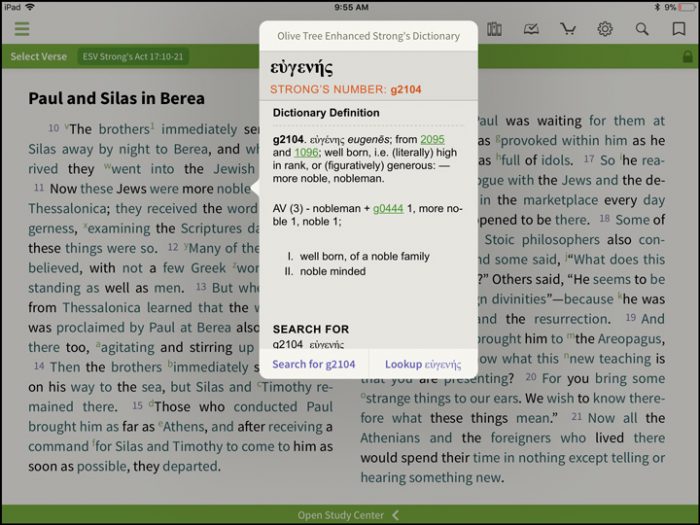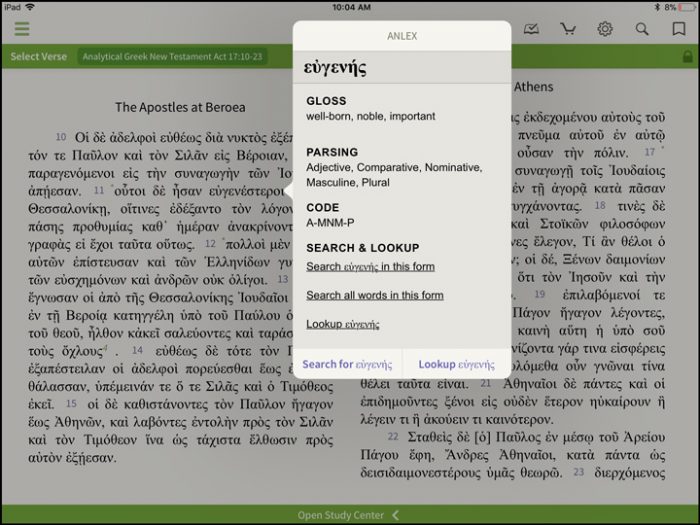“As soon as it was night, the believers sent Paul and Silas away to Berea. On arriving there, they went to the Jewish synagogue. Now the Berean Jews were of more noble character than those in Thessalonica, for they received the message with great eagerness and examined the Scriptures every day to see if what Paul said was true. As a result, many of them believed, as did also a number of prominent Greek women and many Greek men.” — Acts 17:10-12, NIV
It can be very difficult to know what is true and what isn’t. Do you often feel overwhelmed and exhausted by all the fact checking that is required of us? We are CONSTANTLY receiving new information: articles shared on Facebook, opinions on Twitter, advertisements on Instagram, books, movies, app notifications… the list goes on and on.
The Bereans weren’t unaware of the pressure to have correct information. With the news Paul and Silas were spreading about Jesus, everyone was on edge. The Gospel challenged the current thought trends on religion, politics, socioeconomics, and more. So, choosing sides was a lot more threatening than picking Democrat or Republican. This decision was religious rulers versus Jesus, Rome versus Jesus, cultural values versus Jesus… and behinds the scenes, Satan versus Jesus.
But in Acts 17:10-12, we see Luke write something attention-grabbing. He lifts the Berean Jews up as an example. This is rare! Why did he choose to say this, out of all the people they met on their journey? A characteristic stood out to him—a very important one.
NOBILITY OF THE BEREANS
According to Strong’s, the use of “noble” here is the Greek word εὐγενής. It means, “well born, i.e. (literally) high in rank, or (figuratively) generous.

In 2020, I picture Luke saying something like, “The Berean Jews knew how to stay classy.” When they were met with a difficult message, they kept their character in check and remained honorable. When everything they were taught was challenged by the Gospel, they didn’t run away plugging their ears or start shouting over Paul and Silas. With eagerness and a willing mind they began the process of fact checking, seeing if the Old Testament really did prophecy Jesus to be the Messiah.
In the end, they discovered the Gospel to be true and became followers of Jesus.
NOBILITY TODAY
Maybe this Sunday you will find yourself questioning if what is being preached is true. Perhaps you’re in a Seminary course and your textbook is making some interesting claims. Or, maybe you’re simply scrolling through Facebook and a headline makes your stomach churn with anger, fear, and questions.
How can we be like the Bereans in these moments? Here are a few tips:
- Don’t lose your temper
- Having a willing mind
- Listen to what others are saying
- Evaluate the claims others make
- Compare what we hear with Scripture
- Consider if some of your long-held interpretations of Scripture need to be re-examined
- Ask some friends to join you in your research
- Rinse and repeat
One of the trickiest situations we encounter is when someone claims the Bible to mean something we aren’t sure to be true. The problem is that the Bible is a translation and not all of us are Greek and Hebrew scholars. How do we evaluate these claims then?
Like we did toward the beginning of this post, you can use a Bible study tool that has Strong’s. With a tool like this, you look up nearly any word with a tap or two and read it’s original definition.
If you do have experience with Greek and Hebrew, you might find it helpful to have a resource that provides you with parsings. If this feature is listed on one of our product pages, you can expect a tool like this:

Do you have any advice on how to eagerly examine Scripture to see if what you hear is true? Comment below!




0 Comments